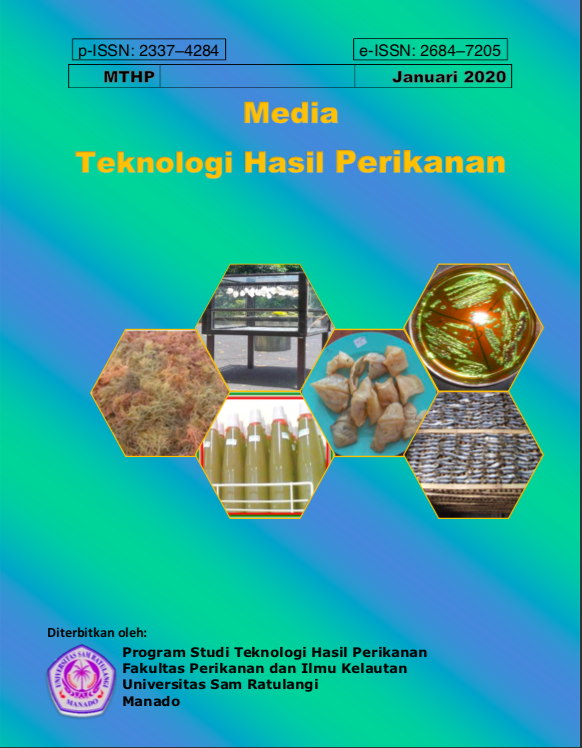Mutu Organoleptik Abon Ikan Roa Asap Dari Desa Bahoi Kecamatan Likupang Barat Kabupaten Minahasa Utara
DOI:
https://doi.org/10.35800/mthp.8.1.2020.26057Keywords:
Potensi, Abon, diversifikasi, pemberdayaan perempuan, Bahoi, Minahasa UtaraAbstract
The utilization of smoked roa into a final product is still very limited, so it is necessary to diversify the smoked roa by processing to become shredded products. Processing smoked roa into shredded will give practicality to consumers in consuming ready-to-eat roa fish. This product has a soft texture, distinctive taste and aroma. Abon making is one alternative to fish processing. This is done to anticipate abundance of production or to diversify fishery products. In this process, fish made in shredded fish are smoked roa which are treated by using a spinner and without using a spinner machine, while panelists are women who process the shredded smoked roa and several woman in Desa Bahoi. Organoleptic test results and the quality of shredded smoked roa fish produced by coastal women of Desa Bahoi, Likupang Barat, Kabupaten Minahasa Utara showed that the panelists gave an average response very like and extremely like (grades 8 and 9) on the taste, aroma and texture of shredded roa which is drained using a spinner machine. For other tests such as water content, and the Total Plate Count the results still meet the requirements of Indonesian National Standard (SNI) for shredded products in generalÂ
Downloads
Published
How to Cite
Issue
Section
License
Authors who publish with this journal agree to the following terms:
- Authors retain copyright and grant the journal right of first publication with the work simultaneously licensed under a Creative Commons Attribution License that allows others to share the work with an acknowledgement of the work's authorship and initial publication in this journal.
- Authors are able to enter into separate, additional contractual arrangements for the non-exclusive distribution of the journal's published version of the work (e.g., post it to an institutional repository or publish it in a book), with an acknowledgement of its initial publication in this journal.
- Authors are permitted and encouraged to post their work online (e.g., in institutional repositories or on their website) prior to and during the submission process, as it can lead to productive exchanges, as well as earlier and greater citation of published work (See The Effect of Open Access).






